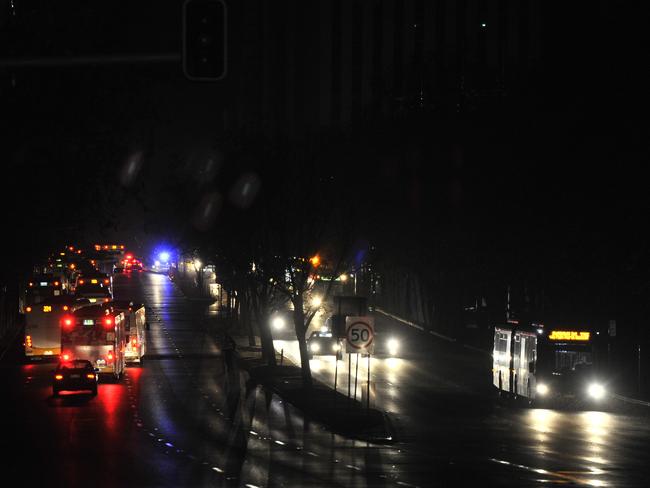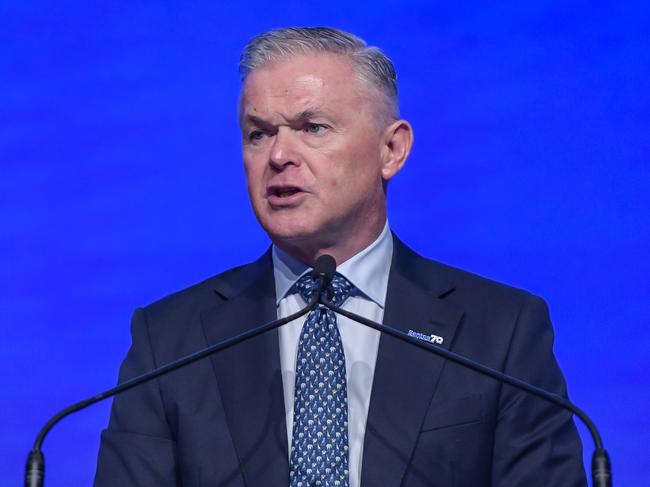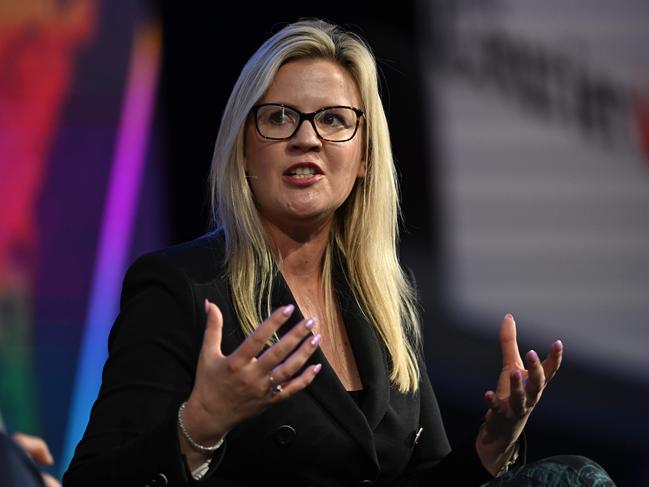Australia’s new Dark Ages: Gas offers energy crisis lifeline as summer blackout warnings are brought forward
Aussie households face being plunged into summer blackouts unless politicians and regulators take urgent action on gas supplies. See what the experts say needs to happen now.
National
Don't miss out on the headlines from National. Followed categories will be added to My News.
NOTE: The Press Council has not upheld a complaint about this article. Read the full adjudication here.
Households face being plunged into darkness – while paying even more for power – without urgent action on Australia’s gas shortage.
Industry leaders are eager to tackle the looming deficit, but to have any hope of success they say politicians and regulators must end lengthy project approval delays.
Today this masthead launches a week-long in-depth series explaining the critical importance of stepping on the gas to head off a crisis that also threatens to drive jobs offshore and trash the transition to renewables.
Just days ago, Sydney residents were warned not to run washing machines or dishwashers in the evening and government departments switched off the lights, amid fears the grid would be unable to handle an unremarkably hot day with temperatures in the 30s.
NSW Premier Chris Minns said Sydneysiders could expect more blackout warnings over summer due to continued instability of the state’s energy supply.
“We could have (blackouts), particularly if you get a run of hot days, real challenges for the network - that’s going to be the situation for the summer periods,” he said.
“I can’t promise a complete run through summer without warnings or potential disruptions when it comes to energy supply.”
Mr Minns said while solar could pick up the slack during the day, he acknowledged there would be a need to gas supply to help fill the gaps, and reiterated the government would not get in the way of a massive proposed gas field at Narrabri in northern NSW.
The Australian Competition and Consumer Commission (ACCC) warned in a report in July that the eastern gas market – which connects Darwin, Brisbane, Sydney, Adelaide, Melbourne and Hobart – will face shortages from 2027, a year earlier than it had forecast just six months earlier.
Woodside Energy’s CEO Meg O’Neill said a lack of availability would add to the cost of electricity and consumer goods produced using gas.
“As any first-year university economics student will tell you, the surest way to bring down prices in any market is to increase supply,” Ms O’Neill said.

Transmission pipeline giant APA’s managing director Adam Watson said a shortage would threaten the viability of local manufacturers of building products required to construct desperately needed housing, producers of fertiliser required to grow food. It would also hamper hospitals and the hospitality sector.
“We need to move – now,” Mr Watson said. “Gas is the way to keep industry going which translates into keeping jobs in Australia.”

In its report in July, the ACCC said the two reasons it was predicting a shortage to hit sooner were lower forecast supply “due to delays in anticipated regulatory approvals for new projects and problems with legacy gas fields.”
There was an “urgent need to develop new sources of gas production and supply,” the commission advised.
But the boss of gas and oil major Santos Kevin Gallagher said stepping on the gas was the one thing other regulators were not focused on.

As an example, Mr Gallagher said that at the start of the year, Santos was working off version 72 of the National Gas Rules, but “today our marketers are working off version 82.”
He also cited the ongoing battle Santos has faced to get its Narrabri project, in western NSW, up and running.
“The environmental impact statement for that project was submitted in 2017 and in 2024, the production licences for Narrabri still cannot be granted because of ongoing litigation” over native title and climate change, Mr Gallagher said.
APA’s Mr Watson said he feared the newer Beetaloo project in the Northern Territory would suffer the same fate.
“If we keep putting hurdles up then we can’t bring it to market in time to address the shortfall,” Mr Watson said. “At times it feels like the left hand doesn’t know what the right hand is doing.”
Ms O’Neill said: “Investment has been held up by the uncertainty caused by policy interventions, slow and complex approval processes and lawfare waged by anti-industry activist groups.”
These delays also threatened the transition to net zero, Ms O’Neill said.
Gas fired power generators would become increasingly important to grid reliability, backing up renewables “in periods of peak demand when the sun isn’t shining and the wind isn’t blowing,” she said, echoing points made recently by the federal government.
“Without gas, the east coast electricity system is even more at risk,” Ms O’Neill argued.
Industry group Australian Energy Producers’ chief Samantha McCulloch said increasingly it will be “gas that needs to step in and keep the lights on.”

Ms McCulloch said Victoria, in particular, had been “sleepwalking towards a cliff” after the “demonisation” of gas and blocking new supply. Shortages there could hit even sooner than the ACCC had warned, she said.
Gas would have to be imported into Victoria from interstate or overseas, Ms McCulloch said.
NSW was also in trouble, she added. Queensland and SA were in much better positions, having backed exploration and development.
APA’s Mr Watson said gas should be added to the Albanese government’s capacity investment scheme, which would help to underwrite new project costs. The Dutton Opposition has vowed to make this change if elected next year.
Mr Watson also said gas should be included in Australia’s official sustainable finance “taxonomy” to assist in attracting cheaper funding.
When this masthead asked the Albanese government what it was doing to avert a shortage, Energy and Climate Change Minister Chris Bowen’s spokeswoman pointed to series of commitments over several months to June that had secured an extra 600 petajoules of supply for the eastern market. The government had also expanded the Australian Energy Market Operator’s powers to manage seasonal supply pressures, she said.





